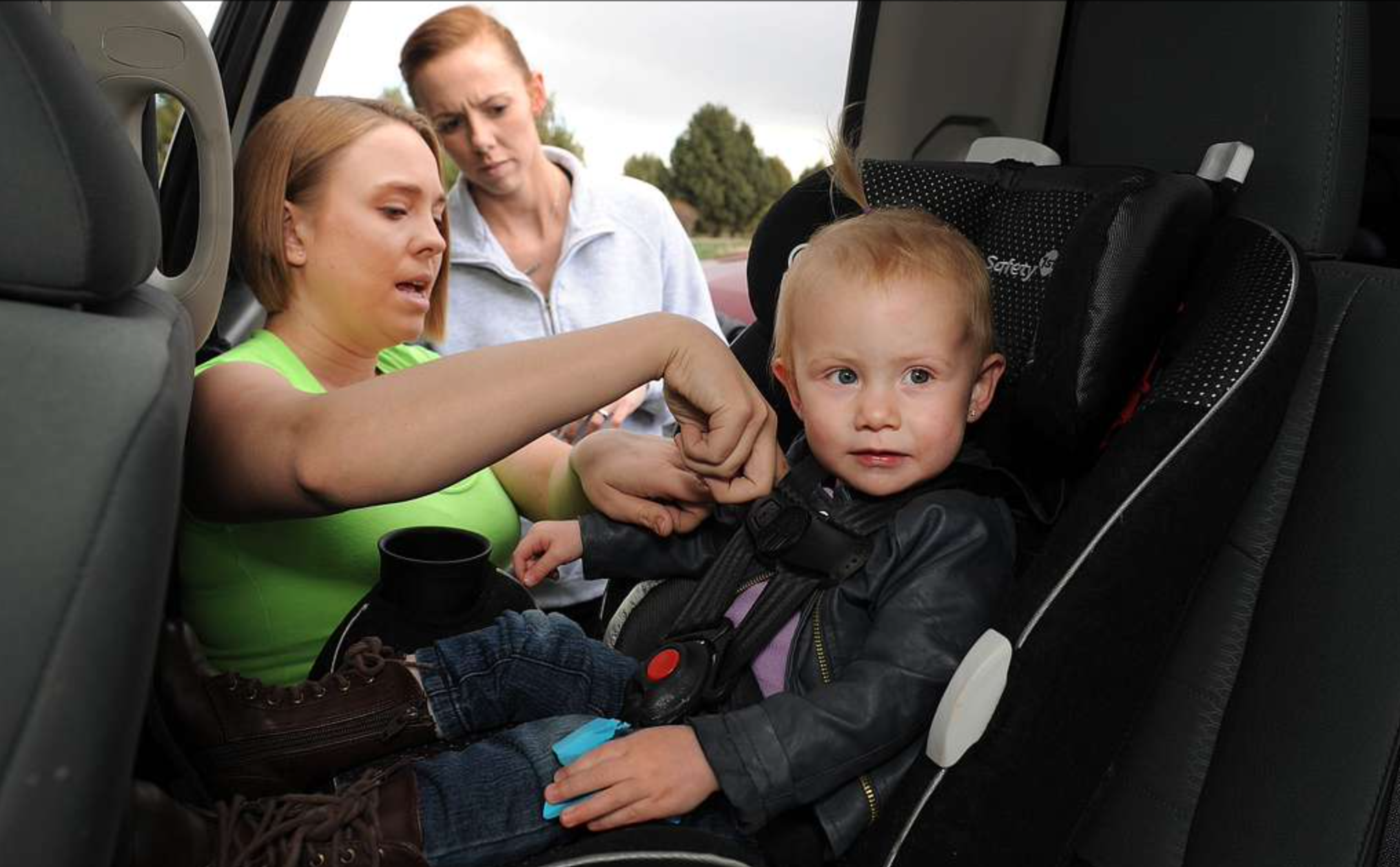America's auto-centric approach to transportation planning is making life more stressful for women who disproportionately run all over town to care for others', a new study confirms — and lightening that load starts with designing cities where more of the people they care for can move independently without a car.
In a new study of 2021 travel data, researchers at the University of Michigan confirmed that U.S. women are still making more "household-serving" trips — such as transporting children, accompanying elderly relatives to the doctor, making grocery runs — than men. Moreover, women were 60 percent more likely to make those essential trips on a weekday than the average man, and they were also more likely to report "increases in stress and decreases in their happiness and sense of meaning" after they did so, at least when compared with trips that fell under the umbrella of "leisure activities."
Those findings held true whether women worked full-time outside the home or not, even as men with full-time jobs had a lower probability of performing care-related travel on weekdays than their unemployed counterparts.
U.S. transportation planners, though, rarely measure how their infrastructure decisions affect residents' social and emotional well-being — never mind how to make travel less stressful for parents stuck shuttling kids to far-flung sports practices or struggling to do the weekly shopping by bus. As a result, gender-marginalized people who perform most care work are being left behind.
"The metrics that we have relied on up to this point are infrastructure-centric metrics; they tell us how well the infrastructure is doing," said F. Atiyya Shaw, an assistant professor at the University of Michigan and the co-author of the paper. "But when we start thinking about things like well-being and quality of life and accessibility, those tell us how people are being impacted. It's kind of a paradigm shift."
Shaw is careful to note that it's probably not the act of caretaking itself that makes care-related travel so stressful for U.S. women, but the time pressure of being asked to do it on top of the other responsibilities in their lives — and the many ways that auto-centric planning makes performing those tasks even harder.
Those two things together, she said, can transform something as simple as getting a kid to daycare from a pleasant bike ride with your toddler to a dreaded wait in a long SUV drop-off line when you're already late for work.
"We really didn't want the headline to be 'Women are stressed by caregiving travel,' because there's more nuance there," she added. "Our study, and other studies, show that caregiving-related activities can be highly meaningful, and they can bring they can bring a lot of value into our lives, regardless of gender. ... I'm a mom to a 2-year-old, so these findings are very real to me. The time I spend with her is most certainly some of the best hours of my day."
Shaw also adds that modern travel studies don't always do a good job of capturing the basics of when, where, and how Americans travel to perform care work, never mind who's doing that labor or how it uniquely affects people with intersecting marginalized identities. The data upon which her study was based, the 2021 American Time Use Survey, samples only a single day in the life of the U.S. traveling public, and it only offers participants the option of identifying themselves as "male" or "female," rather than other genders.
Even without that data, though, the researchers say caregivers would likely be better served by policies that allow care-receivers to travel independently whether or not they drive — rather than, say, widening highways along driving routes caregivers rely on, which doesn't relieve congestion anyway. That might look like upping funding for Safe Routes to School programs that allow kids to safely walk or roll to class alone, or great transit that serves adults and elders with disabilities who might otherwise rely on their relatives for rides. It also might look like land-use reforms that put care facilities on the corner, rather than on the highway at the edge of town.
"These populations are the ones that are most in need of caregiving support, especially with regard to travel," added Shaw. "So thinking about how we can provide ways for them to independently access activities and destinations would really be the thing that would relieve the burden on caregivers."






